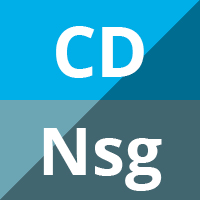
Percutaneous vascular interventions versus intravenous thrombolytic treatment for acute ischaemic stroke
Abstract Background Most ischaemic strokes are caused by blockage of a cerebral artery by a thrombus. Intravenous administration of recombinant tissue plasminogen activator given within 4.5 hours is now standardtreatment for this condition. Percutaneous vascular interventionsuse an intra‐arterial, mechanical approach for thrombus disruption or removal (thrombectomy). Recent randomised trials indicate thatpercutaneous vascular interventions are superior […]

Antibiotic therapy for preventing infections in patients with acute stroke
Abstract Background Stroke is the main cause of disability in high-income countries and ranks second as a cause of death worldwide. Infections occur frequently after stroke and may adversely affect outcome. Preventive antibiotic therapy in the acute phase of stroke may reduce the incidence of infections and improve outcome. In the previous version of this […]

Antithrombotic treatment after stroke due to intracerebral haemorrhage
Abstract Background Survivors of stroke due to intracerebral haemorrhage (ICH) are at risk of thromboembolism. Antithrombotic (antiplatelet or anticoagulant) treatments may lower the risk of thromboembolism after ICH, but they may increase the risks of bleeding. Objectives To determine the overall effectiveness and safety of antithrombotic drugs for people with ICH. Search methods We searched […]

Nitric oxide donors (nitrates), L-arginine, or nitric oxide synthase inhibitors for acute stroke
Abstract Background Nitric oxide (NO) has multiple effects that may be beneficial in acute stroke, including lowering blood pressure, and promoting reperfusion and cytoprotection. Some forms of nitric oxide synthase inhibition (NOS-I) may also be beneficial. However, high concentrations of NO are likely to be toxic to brain tissue. This is an update of a […]

Low-molecular-weight heparins or heparinoids versus standard unfractionated heparin for acute ischaemic stroke
Abstract Background Low-molecular-weight heparins (LMWHs) and heparinoids are anticoagulants that may have more powerful antithrombotic effects than standard unfractionated heparin (UFH) but a lower risk of bleeding complications. This is an update of the original Cochrane Review of these agents, first published in 2001 and last updated in 2008. Objectives To determine whether antithrombotic therapy […]

Immediate versus delayed treatment for recently symptomatic carotid artery stenosis
Abstract Background The timing of surgery for recently symptomatic carotid artery stenosis remains controversial. Early cerebral revascularization may prevent a disabling or fatal ischemic recurrence, but it may also increase the risk of hemorrhagic transformation, or of dislodging a thrombus. This review examined the randomized controlled evidence that addressed whether the increased risk of recurrent […]

Intraoperative mild hypothermia for postoperative neurological deficits in intracranial aneurysm patients
Abstract Background Rupture of an intracranial aneurysm causes aneurysmal subarachnoid haemorrhage, which is one of the most devastating clinical conditions. It can be classified into five Grades using the Hunt-Hess or World Federation of Neurological Surgeons (WFNS) scale. Grades 4 and 5 predict poor prognosis and are known as ‘poor grade’, while grade 1, 2, […]

Puerarin for acute ischaemic stroke
Abstract Background Puerarin, a form of herbal medicine, is widely used in the treatment of ischaemic stroke in China. Objectives To assess the effects of puerarin in people with ischaemic stroke. Search methods We searched the Cochrane Stroke Group Trials Register and the Chinese Stroke Trials Register (last searched August 2015). In addition, we searched […]

Buflomedil for acute ischaemic stroke
Abstract Background Few strategies are effective for the treatment of acute ischaemic stroke. Buflomedil is a vasoactive agent that has been used for peripheral arterial diseases. Research studies have suggested that buflomedil may have beneficial effects in people with cerebral vascular diseases, including acute ischaemic stroke, however it has not been approved for treating stroke […]

Prothrombin complex concentrate for reversal of vitamin K antagonist treatment in bleeding and non-bleeding patients
Abstract Background Treatment with vitamin K antagonists is associated with increased morbidity and mortality. Reversal therapy with prothrombin complex concentrate (PCC) is used increasingly and is recommended in the treatment of patients with bleeding complications undertaking surgical interventions, as well as patients at high risk of bleeding. Evidence is lacking regarding indication, dosing, efficacy and […]

